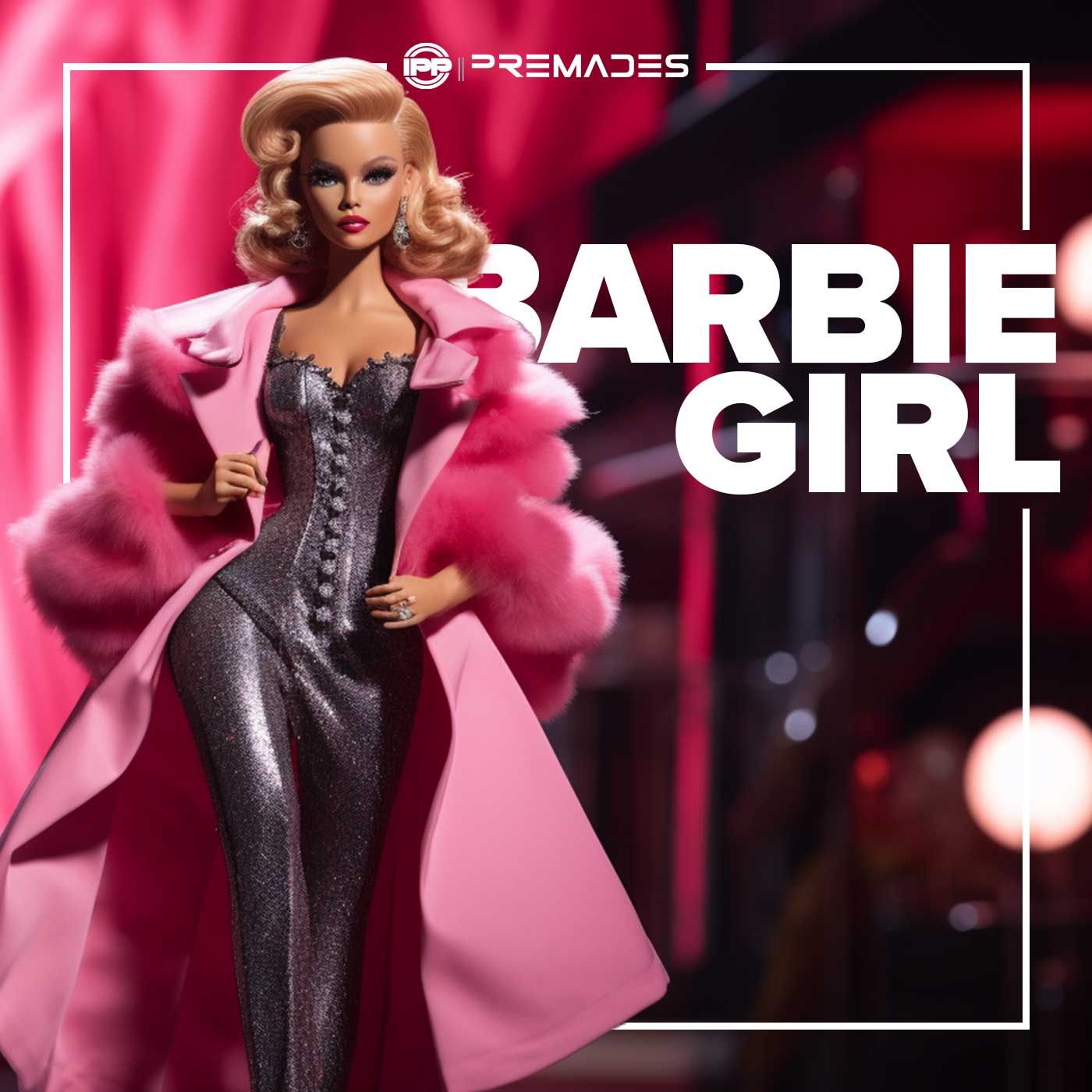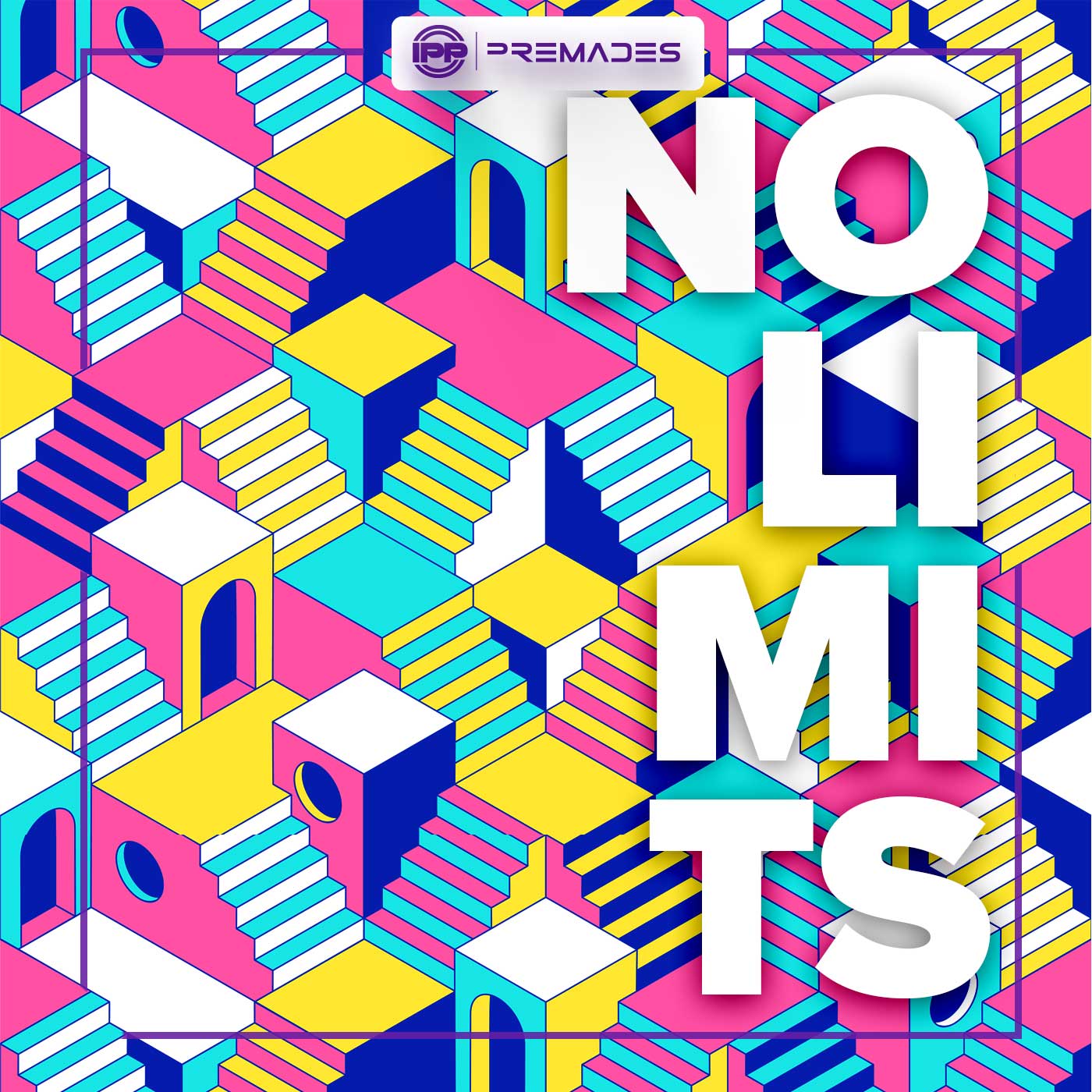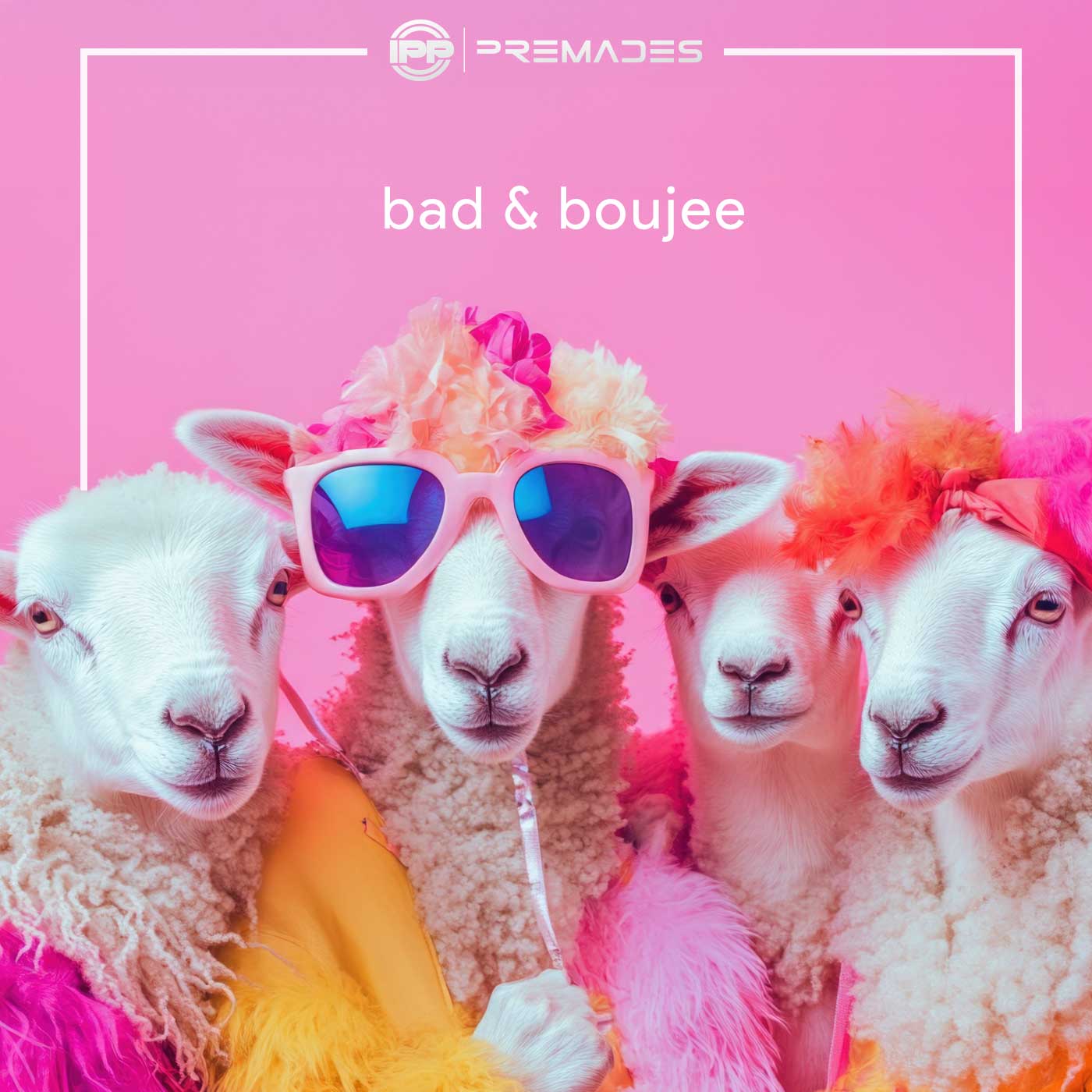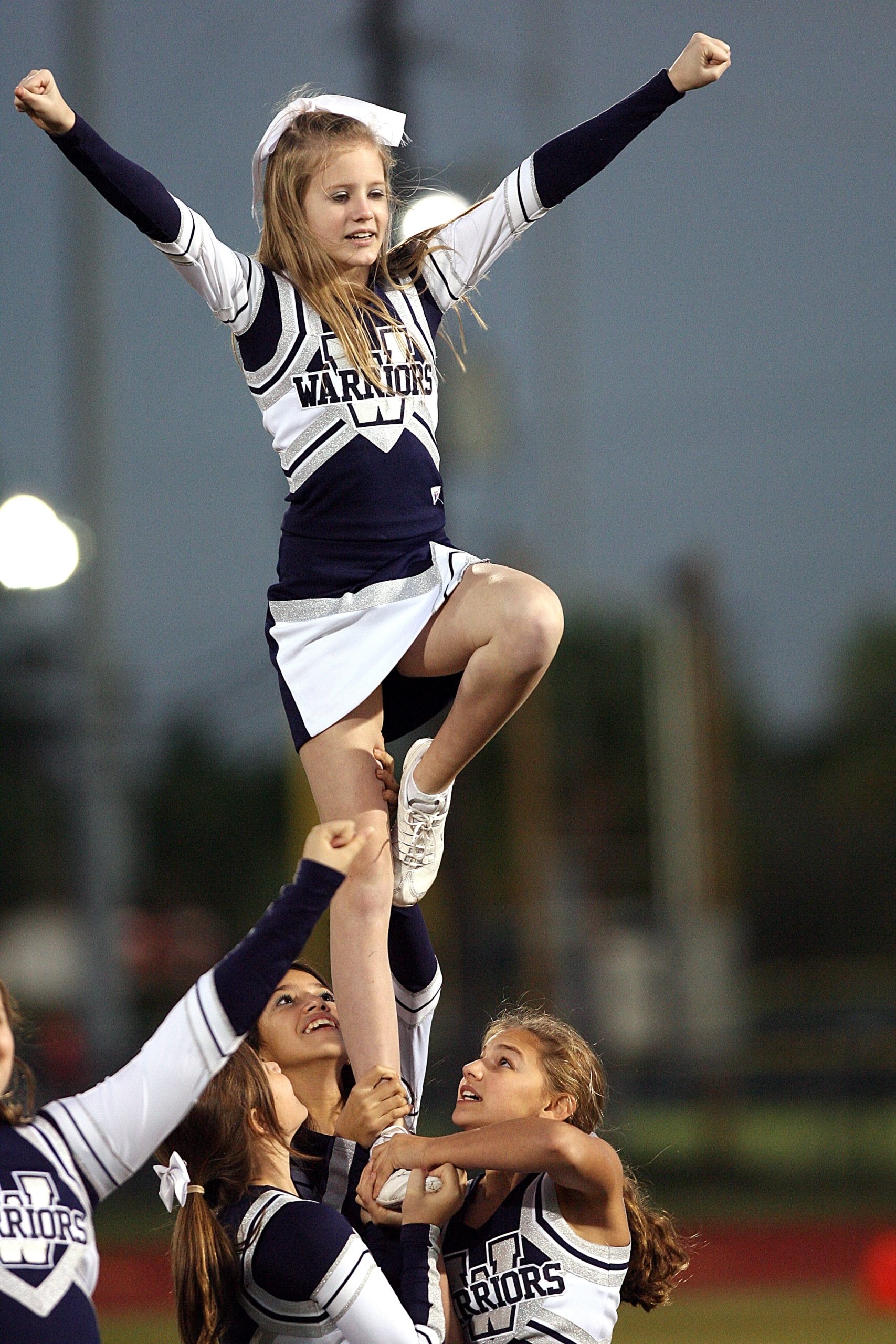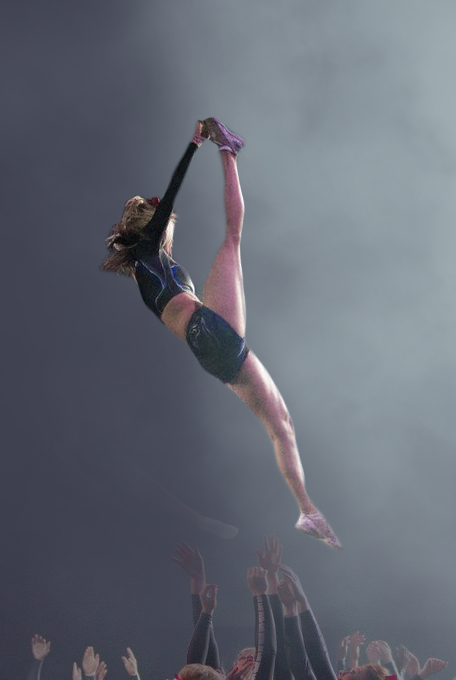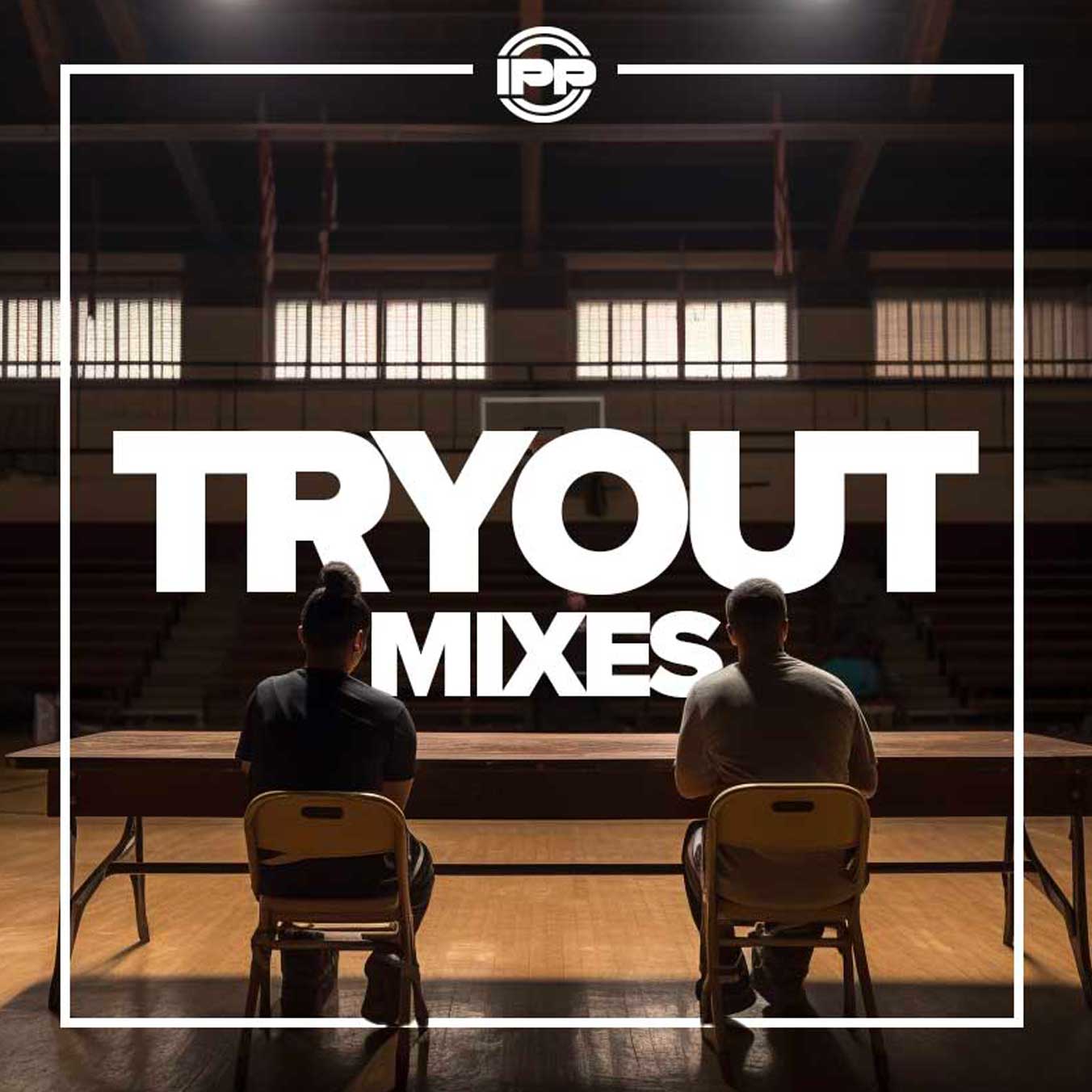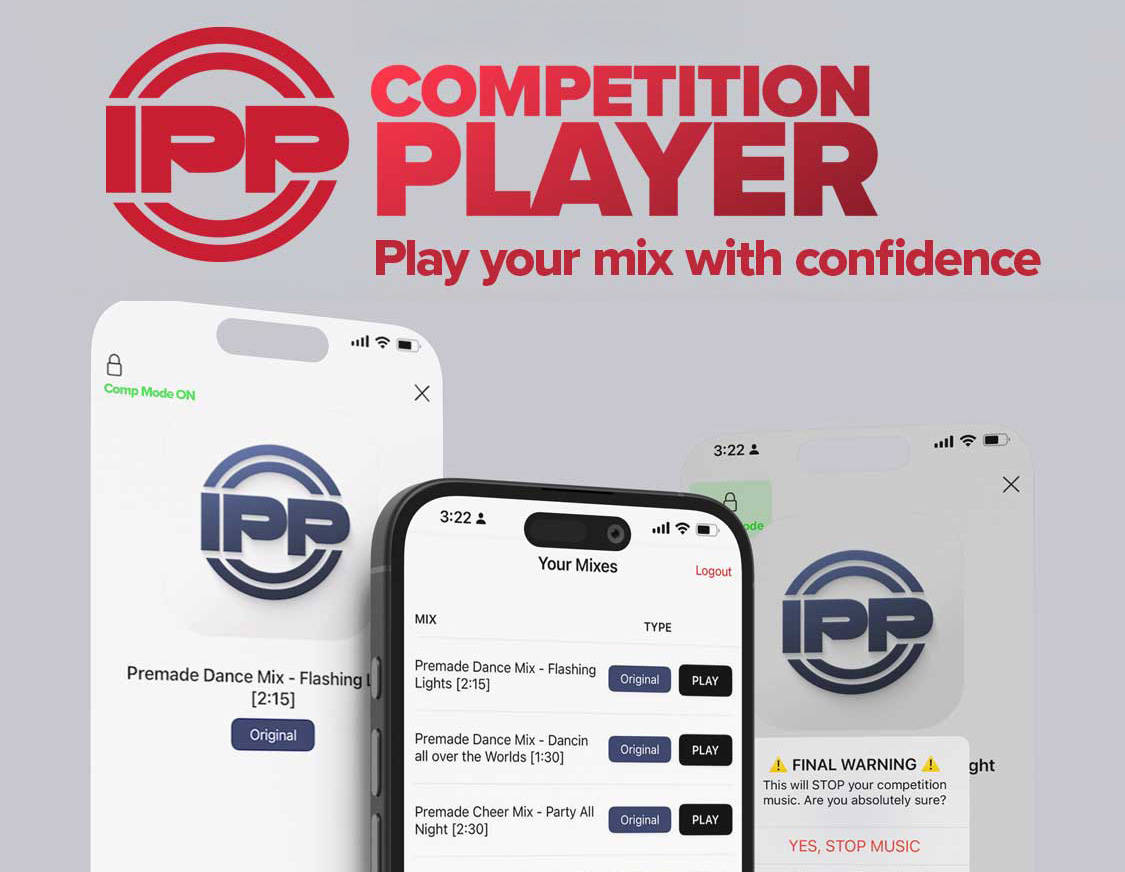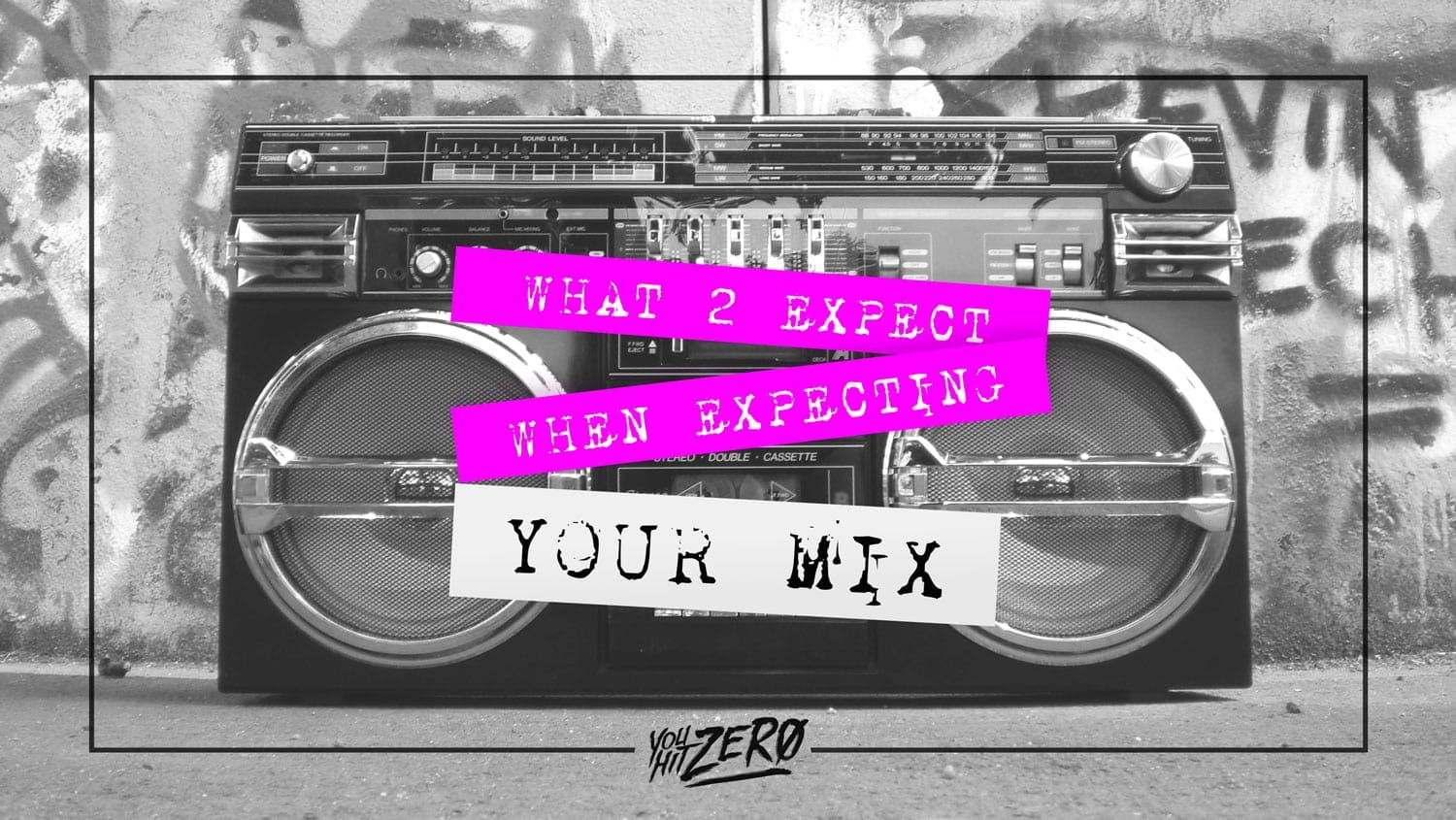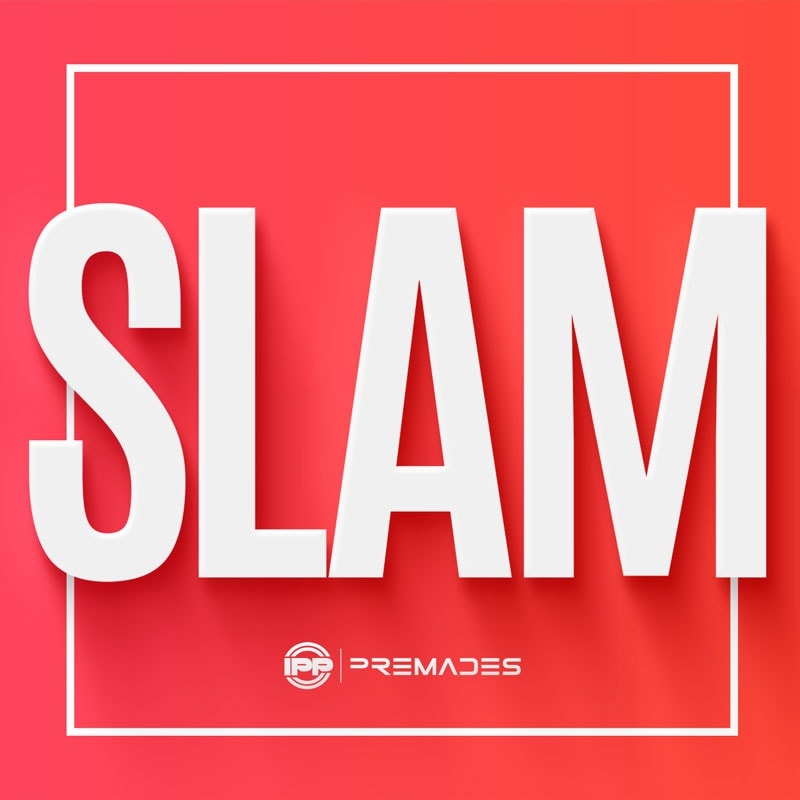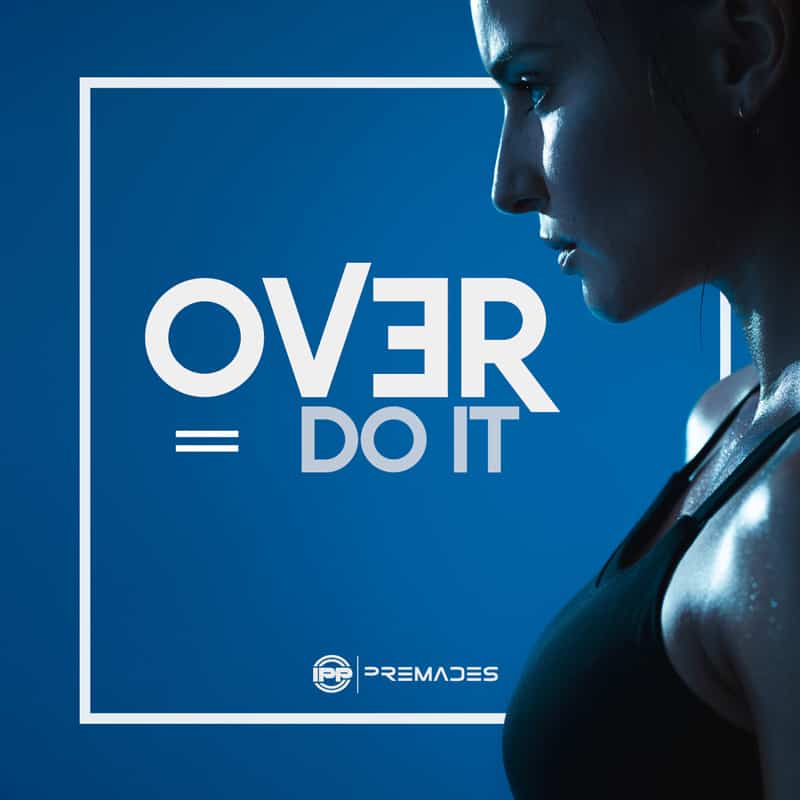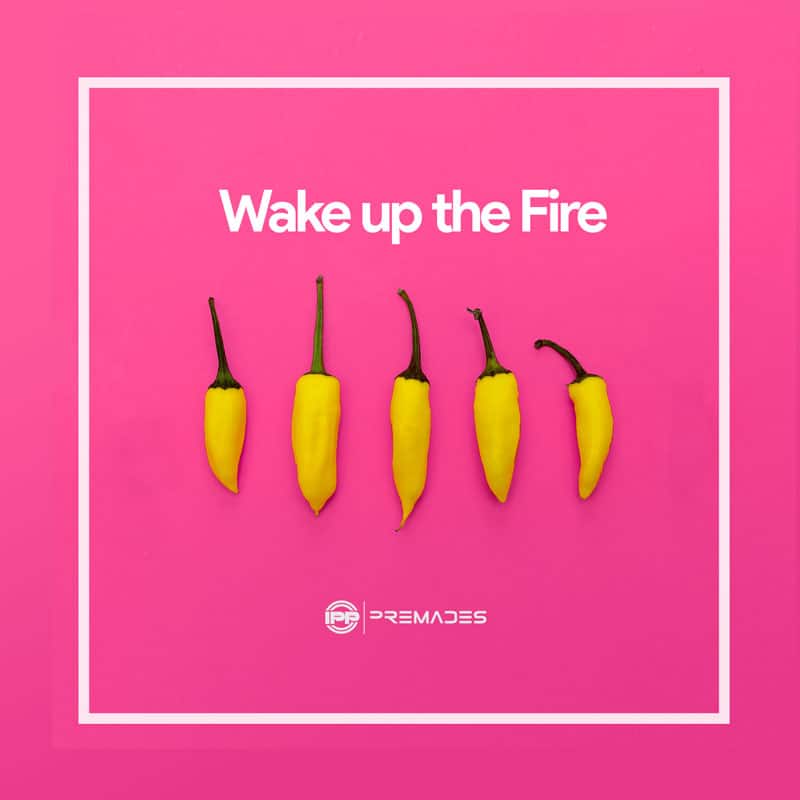By Steve Pawlyk
Published July 22, 2019
In the blink of an eye the 2018 season is gone and 2019 is upon us.
It feels so good to see new faces in the gym and athletes both young and old working towards new skills. The start of a new season is one of the most exciting times of the year. There is so much to look forward to and so much growing to be done by everyone in your gym. With teams formed, practice wear/uniforms being designed and choreography booked there is just one more thing to check off of your list. MUSIC! Although the music process can be so invigorating, it can also be super stressful. But, it doesn’t have to be. I’d like to relieve some of the anxiety surrounding your routine music by walking you through some ways to help you get ready to order and what to expect when expecting your mix.
Finding The Right Producer
My first piece of advice is to “do your homework”. Just like your athletes prepare for competition each week/month by practicing, there is some prep work for you to do before ordering a mix that perfectly complements your innovative routine. I would highly suggest shopping around before committing to any one production company. There are many great production companies in our industry that would love to earn your business and provide you an awesome mix. However, there are some less than genuine producers out there. So where should you start when trying to find the right producer? A good place is the USA Cheer list of compliant vendors found here.
Another beneficial method to find a trustworthy production company is via word-of-mouth recommendation. Ask your friends and fellow owner/coaches who they have found to be reliable. You can always check out the Facebook groups “Allstar Gym Owners Association” (ASGA) or “Small Cheer Gym Association” (SCGA). These two groups can be very advantageous to any coach or owner looking for a particular service (e.g., music, uniforms and etc.).
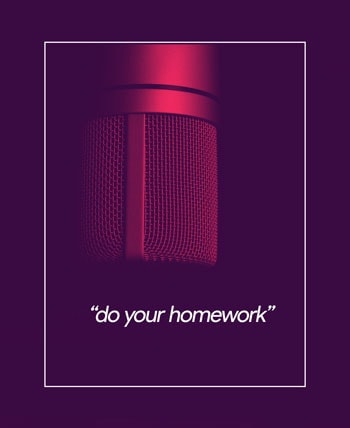
A few extra notes regarding picking your producer – ask for samples, look for pricing tiers (will be beneficial to help stay on budget), make sure that turn-around-time is desirable, and be aware of all policies and procedures. Providing that your producer meets all of your requirements, I truly believe that communication is the most important part when making your selection. We will come back to this point later on. For now, if you like what you see and hear it’s time to submit that Booking Request
Booking and Scheduling
The next task will be to submit your mix requests and receive your production dates. Each company will do booking and scheduling differently. At IPP, we have an easy online form that you can fill out and submit. You can also attach any documents you may have (e.g., 8-count sheet). Other companies may require that you submit information (i.e., program name, team name, package & etc.) via email. Once your producer receives this necessary information you should then expect a follow up that includes an invoice and tentative mix dates. I say tentative because most production companies require at least a 50% deposit before exact productions dates are established.
Keep in mind that in a lot of cases these deposits are non-refundable. If you have gotten to this point you really need to make sure that you wish to proceed. Why non-refundable you ask? Because most companies will start working on parts of your order right away (i.e., vocals, song creation & etc.). This can be costly. Therefore, if you cancel and request a refund then the producers loses all the time and money that has been put in up that the point on cancellation. Again, each company operates differently so make sure that you understand all policies.

8 count sheet & Video Creation
Now that you’ve chosen your production company and have submitted your booking request the fun really begins! It’s now time to put together your routine information that will be sent to your producer. This information will be used to produce your amazing mix Although this can be tedious it is very important. Keep in mind that some producers like 8-count sheets, some like videos and yet others like to have both (most effective). Having both 8-count sheet and videos can be super beneficial to producer because it the 8-count sheet helps the producer layout the mix quickly and the video helps with nuance. Additionally, some videos are submitted before teams can go full out which can lead to the producer misinterpreting some of the actions that will need particular sound effects. Before recording and submitting your videos please make sure to ask your producer if they have a prefered 8-count track that they would like you to use.

Recording to the coach counting out loud can be a critical mistake leading to videos needing to be re-recorded and submitted. Side note: even if you record to an 8-count track we would advise to not yell and scream during the recording. This can sometimes make it difficult for your producers to line up your video in his/her music software especially if you record to an 8-count track that it not theirs or one for which they are not familiar.
In regards to completing your 8-count sheets you will want to be descriptive, but concise. Try to keep each cell to one or two action words such ”aerobesque”, “full up”, or “double down”. Your producer may want you to use a particular count sheet or set of action words. I would ask before hand as to prevent any production delays. For more tips on effectively filling out your 8-count sheet please check out our blog
Song Selection:
This is the part that can cause you to tear your hair out.
I understand that selecting songs can be overwhelming. With the new music rules things seem to have changed drastically over night. Remember when you would search day and night through itunes or youtube looking for that perfect stunt song? This was an art in and of itself so most coaches. They perfected this. And now it’s like tutor to most. However, it doesn’t have to be. Almost all production companies work with 3rd party vendor that they license songs from each season. Although they may change vendors from time-to-time, your producer will provide you a list upon booking. Once you have the particular sites to choose from you can take things back to the way that they used to be. Even though you won’t be browsing popular radio songs you will still be able to find the perfect song for each section by using a number of filtering parameters such as “mood, genre and etc. If you are still finding it hard to choose then I’m sure that your producer will be willing to lend his or her expertise. When it comes to song selection you will not only want to pick a song that stylistically fits a particular section, but also something for which your athletes can relate. I can’t tell you how many edits we have had to do based on athletes not liking a particular song despite it fitting the section well. Telling whether or not that your athletes like a song is easy. They will tell you. However, determining which style or type of song is appropriate for a particular section can be a little more tricky. Let me help you with that right now.

Although song selection for your overall mix and/or specific sections can be subjective, there are generally some styles that really work well and others that don’t. It’s probably easier to start with types of songs that either don’t work or just don’t make for an exciting mix. Again, this is my opinion. First, rap/hip hop songs tend to never work in a cheer mix. Reason being is that the tempos are generally too slow. When we speed them up to cheer tempo they sound way too fast. Lyrics become unclear and you lose the essence of the song. Other types of songs that we don’t recommend are old songs. I know, “old” is vague, but I think you get it. Older recordings just don’t stand up to today’s production sound quality. Mixing and older Donna Summers songs with a brand new Ariana Grande song just doesn’t mesh well.
I know what you’re thinking right now. Steve, we can’t use radio songs. Although your typical allstar team can’t there are still some teams who are required to follow music copyright laws by their event producer. This one is for them, lol. However this can still hold true when working with a producer who licenses songs from a third-party vendor. Some of these vendors have thousands and thousands of songs in their libraries. You can definitely tell the difference between their older recorders and newer.Although song selection for your overall mix and/or specific sections can be subjective, there are generally some styles that really work well and others that don’t. It’s probably easier to start with types of songs that either don’t work or just don’t make for an exciting mix. Again, this is my opinion. First, rap/hip hop songs tend to never work in a cheer mix. Reason being is that the tempos are generally too slow. When we speed them up to cheer tempo they sound way too fast. Lyrics become unclear and you lose the essence of the song.
Other types of songs that we don’t recommend are old songs. I know, “old” is vague, but I think you get it. Older recordings just don’t stand up to today’s production sound quality. Mixing and older Donna Summers songs with a brand new Ariana Grande song just doesn’t mesh well. I know what you’re thinking right now. Steve, we can’t use radio songs. Although your typical allstar team can’t there are still some teams who are required to follow music copyright laws by their event producer. This one is for them, lol. However this can still hold true when working with a producer who licenses songs from a third-party vendor. Some of these vendors have thousands and thousands of songs in their libraries. You can definitely tell the difference between their older recorders and newer.
My last piece of advice when selecting songs is to not pick a song just because the title of the song matches a theme that you are trying to achieve. Themes are too common anymore as a result of the new music rules, but from time to time we come across a team that wants a specific theme like “fire” or “girl power”. What typically results is the coach providing numerous songs titles that pertain to that specific theme. When we, the producer, listen to the songs we usually find that they are all different in genre/style and very hard to blend together in an exciting mix. To avoid this, we suggest listening to each track and really making sure that a particular song is appropriate for a fast-paced, high-energy cheer mix.
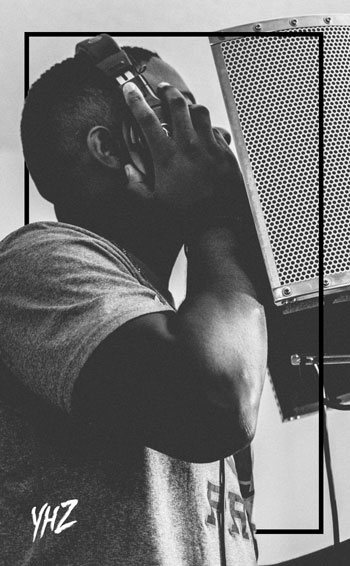
Now that we know which types of songs to avoid, let’s look at what types of songs are suitable for a cheer mix. Types of songs that make for a good cheer mix are generally current, up tempo, electronic or pop in genre, have clear and present vocals and have appropriate language. Mixing similarly recorded and sounding songs give the producer the ability to create a consistent and cohesive mix. Think of it like being at the club. The DJ typically mixes songs of the same genre. For example, if you go to a David Guetta concert you will hear a mix of current electronic based songs. You won’t catch him mixing an EDM song, then a country song, then a disco song and back to EDM again. This would make for a less than pleasant auditory experience. We want your mix to not only express the creativity of your routine, but to also sound good!
When it comes to section specific song (e.g., stunt, pyramid, tumbling and etc.) here are some of our recommendations. For stunt, you usually want a song that is more open and focused on the vocals. Stunt section typically are jammed packed with tons of action. Although there are a lot of creative ins and outs (transitional elements) happening, we wouldn’t say that a stunt sequence is as action packed as your running tumbling. Therefore, we recommend a song that isn’t so drum/beat heavy leaving room for your stunt sound effects to shine and really highlight your team’s actions. Moving on to a section like your pyramid, this component of the routine is arguably the climax. Pyramids are typically super exciting and jam packed with actions performed by the entire team. This is we would recommend as song that is faster-paced and full of energy.
A genre like EDM with a constant 4-on-the-floor drum pattern can work great! The pumping drums and synthesizers will really suck in the crowd and have their hands up. Another section that is full of energy and excitement which deserves a song of the same caliber is your running tumbling. Like your pyramid, running tumbling is one of those sections that has the crowd on their feet. We recommend a fast-paced, beat-driven song for this part. You’ll need a song that gives your athletes that little something extra to push through such a physically demanding party of your routine. Although there are many other sections of your routine, we just named a few. You can contact us at any time to get our full recommendation for song selection for these other parts.
Submission, Communication, Transparency & Delivery
Videos are created, 8-count sheets are filled out and songs have been selected. It’s now time to submit all of that important info so that your one-of-a-kind mix can be created. When submitting your info you will want to make sure that you send it in with plenty of time to spare before your production date. Most companies like to have info sent in 1-2 weeks ahead of your production date(s). Why so early? We like to have time to review everything and make sure that all information has been presented clearly and done properly. Nothing is worse than sitting down to create your masterpiece and not be able to read the 8-count sheet or load the video or have missing songs. This causes delays and aggravation for everyone. Imagine you thinking that your mix is coming today to only open up your email and see a message saying, “Sorry, we cannot complete your mix as scheduled because all of your songs for team X are missing”. You would lose your mind. ![]()

Another reason most producers like to have your routine info way ahead of time is because if gives them the ability to rearrange their schedule on the fly. For example, if the team ahead of you in queue misses their production dates, then we can easily slide you into that spot and get your mixes to you earlier than expected. Now who doesn’t like that! Being prepared can be super beneficial to you and your team. Having your mix earlier gives you more practice time with that mix to be able to learn voice overs and etc. before your big competition.
Now that you have sent in your routine info (on-time) you should expect nothing less than open communication and transparency from your producer. He/she should let you know that they have received your information and that everything is on track. They should be extremely responsive and prompt regarding any additional questions/concerns that you may have while waiting for your mix. If there is an issue or change to schedule for any reason then your producer should let you know immediately. Too many times we hear the horror stories of delivery dates being missed and producers that are nowhere to be found. My heart goes out to you in these cases. It’s not right and you shouldn’t have to deal with that in your life. You have enough going on between running your gym, your life and your family. This is why vetting your producer is very important as we mentioned in the first section.
By now you just want your mix already. Assuming no hiccups and invoice is paid in full, your delivery date is here! Go to your email and download that perfect mix. It will most likely be in mp3 format and you can save it to your phone, itunes and etc. Let’s play this masterpiece! Some things to listen for are that all the sound effects are in the correct place, the correct songs were used (in the correct sections if specified) and voice overs/other lyrics are correct (e.g., correct gym, team name, theme and etc.). One of, if not, the most important thing to double check is that the overall length of mix is accurate. Sometimes mixes can go over time for various reasons. Some competitions give a little grace period. Others don’t. You’ll want to make sure that your mix is dead on time (e.g., 1:30, 2:00, 2:15 or 2:30) to avoid any penalties. If the mix is under time then you’re okay.
Here are a couple remedies to fix your mix if it’s over time. The easiest solution is to have your producer speed up certain parts of the mix (e.g., running tumbling) or the overall tempo of the mix. If you’re like a second over then speeding up one section should do the trick. If you around 3 second over time then you’ll need the entire mix sped up. Another, more tedious fix would be to remove counts from the mix. At traditional cheer tempo each 8-count removed will make up around 3 seconds. In an ideal world a mix would start on 5 and end on 47.1. This makes for a mix dead-on 2:30 with a bpm around 147. If your routine is choreographed past 47.1 then you and your producer should discuss how to handle that ahead of time.
EDITS
Edit – what can I say. It’s a four letter word, lol.
Although most producers don’t love edits – they are necessary. We all know why so we don’t need to go into it. To avoid any confusion and a need for multiple edits due to lack of clarity, let me provide some recommendations for handling edits. If a song swap is needed that is easy. You can simply email your producer, or submit and edit form if they have one, and let them know what song you want in and what song you want out. This is pretty straight forward. On the other hand, sound effect changes can be a little more nuanced. Sound effect changes generally require one of two things (or both). If you are re-submitting your 8-count sheet with your new counts it is preferable that you highlight the new actions. This will tell your producer exactly where to focus in order to expedite the process. Going count-by-count looking for difference makes us pull our hair out. Additionally, it’s best to create the edit 8-count sheet from scratch leaving out the old sound effects that aren’t in the routine anymore and only including the newly highlighted actions. You can also include original sound effects that haven’t been changed.
Another way of submitting your sound effect changes will be to record and send in a new video – obviously recorded to your current mix. This will allow your producer to easily drop the video into his/her music program and line it up quickly. We highly recommend sending an email that gives an overall of what is different. Having the video is great, but if we don’t know what is different then we will have to do count-by-count to figure it out.
If more than song swaps and/or sound effects need to be edited then you’ll need to have a detailed call with your producer to come to a solution. Some major changes may be costly, but hey – you know that already because you read your producer’s Procedures and Policies

I hope this article helped to give you some insight on the music ordering process and what to expect when expecting your mix. If you have further questions feel free to contact us anytime via email, phone or on our live chat.
IPP's Premade Mixes are USA Cheer Compliant and customizable! Add Sound FX, swap songs, & more! Add your Team Name to the mix for only $10!


